

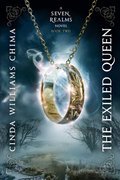

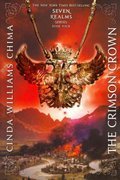
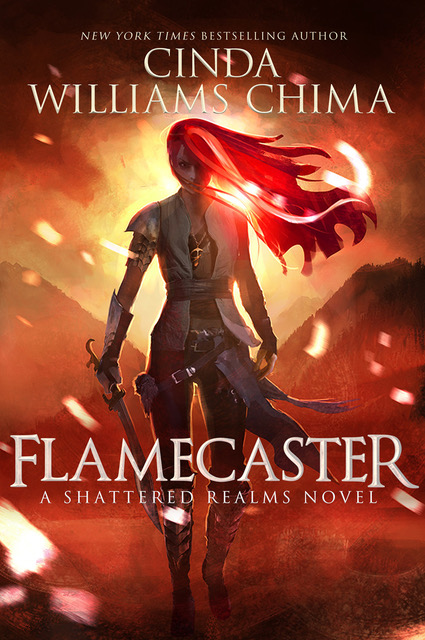


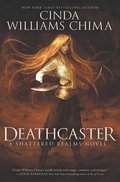
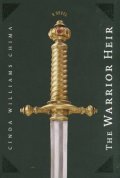
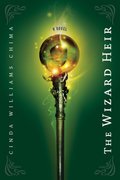




By Melissa Warner Published February 13, 2022
For Cinda Williams Chima (pronounced Chai-muh), “the notion of going through life without reading is just terrifying.” The “very best stories are stories where the reader and writer are partners.” As an author, she balances how much to put in the book and how much to leave to the reader. Clarifying, she said that it is “impossible to get the most out of a book without being an active participant. You [the reader] have to conjure the setting in your mind. I put a framework there and you fill in the rest.” While reading a book may then be “work”, “if it is done right, the reader wants to do the work.” Interestingly, she pointed out that this is why we are so often disappointed in the movie version of a loved book – the movie is “not the reading experience you had.” In her opinion, the most common misconception about being a writer is the thought “how hard can it be?” There tends to be more focus on the concept rather than the execution in imagining being a writer. People think that if “you just have a good idea then you’re almost done” or halfway there. To the contrary, how a book is written is what “makes the difference.”
Children of Ragnarok, the first of the Rune Stone Saga duology, is Ms. Chima’s most recent book and is due out this fall. However, she is currently well known for her high fantasy series the Heir Chronicles, Seven Realms, and Shattered Realms. The Realms series are four books each, set in the same lands, and the list of characters for them is over six pages long(!). When asked how she keeps a story going through eight large books, she laughed and said “I don’t know, I make big messes in my stories; there’s a lot going on.” When asked if she had trouble keeping all of the characters straight while writing, she responded, “oh yeah!” and the character list was originally created for her writing process.
In approaching her story lines and characters, she believes in efficiency – why not have one character fulfill multiple roles? She treats her characters as if they are actors in a movie and on her “payroll;” she doesn’t want to have to pay any more than necessary. As to creating her characters’ names, she has “naming conventions”, and many of the first and last names in her Heir Chronicles (a third series) are pulled from her family tree. Herself named after a character, from the Civil War book House Divided, she is honored to know that readers have named pets and children after her characters, even if just the name. When asked about this, she pointed out that if she had written eight independent books, the number of characters would probably be the same. When asked how she keeps a story going through a series, she laughed and said “I don’t know, I make big messes in my stories; there’s a lot going on.” Each story in each series has its “own story arc,” but is also part of the “overarching story” of the series. Her current work-in-progress, the duology, has been “a little bit of a challenge” in that she has had to narrow down the number of complications in the story.
Although she has tried outlining as a writing method, it has not worked for her. Instead, part of her “process is discovery – what’s going to happen, who are these characters?” She further noted that “if you don’t outline, it’s hard to tell how much space the story is going to occupy.” In fact, she focuses more on characters in the beginning rather than plot. Yet, she does not do a lot of “character development” prior to writing. She stated that when she does a lot of character planning ahead of time, the characters “often break out of whatever plan I had for them.” She prefers “to get to know them through the story.” Ms. Chima’s characters do not “speak” to her, although she wishes they would a little more because it takes a while to “get to know them.”
Interestingly, she knew the end of finale Deathcaster (which “might be the longest book I’ve ever written”) when she began the Shattered Realms series. Ms. Chima quoted fantasy author Terry Pratchett who has described writing a novel like looking down into a valley of mist. One can see the tops of the trees here and there, and maybe all the way to the other side. However, you don’t know what lies in between. Ms. Chima further said “For me, I can see to the other side. I know how it’s going to come out, for at least most of the characters…but I don’t know how I’m going to get there. I head for the first tree.”
Although fantasy writing is filled with imaginary people, places, and events, a great deal of research into real life is still necessary. The level of such depends upon where the fantasy is based. For example, the Heir Chronicles series was set in Ohio with which she is familiar, and, among other things, she did not need to create a map. While she originally created the maps for the Realms series, the publisher hired a cartographer to redraw hers. She felt it was “good news” that she did not have to be good at drawing maps as an author. She has done extensive research on topics such as weapons, horses, castles, self defense, etc., and for her current work-in-progress, she has been researching viking long ships which has been difficult because little was written down at the time. Ms. Chima pointed out that if an author is inaccurate in realistic or historical elements, the reader is unlikely to take anything else seriously in a book. Other technical difficulties in writing include the situation where the author creates their own “magical system.” It has to be logical and the author has to know the limitations of it all, and be consistent in how it is applied and operates.
In high school, she was active in choir, musicals, theater, and worked for a newspaper. Perhaps prophetically, Camelot was her favorite musical they performed. Ms. Chima would not label her books as “fairy tales” despite an earlier statement that “I’ve discovered I can get away with a lot in a fairy tale.” However, “you still have to write a good story, and what magic does is raise the stakes.” Elaborating, she said “the troubles you have to contend with can be much bigger troubles [in fantasy writing]; the survival of the world is at stake if [the problems] are big enough.” Fantasy writing has a “long tradition” of “some big apocalypse” driving and/or being the foundation of the story, and her Realms series are “no different.” “Another advantage of writing fantasy set in a secondary world is that my [teenage] characters…can get into adult-sized trouble…and I won’t get scolded about ‘where were these peoples’ parents’?” She has also stated that “Fantasy provides me a forum in which to explore big ideas in a safe place.”
When asked if a fantasy book has to include romance, Ms. Chima emphatically said “no!” Yet the Realms series includes romantic elements. She explained that romance is “a major part of adolescent business…To me it wouldn’t make sense to write a story where most of the main characters were adolescents and there was [no romance]…going on. On the other hand, “life is not a romance” and she has never written a “formula style romance.” She described how she tries to “create a rounded picture” of what her teen characters’ lives are really like, even if they are fighting in armies, or a saboteur forced into the mines at age 11 and now knows how to “blow things up… There’s a lot going on!”
Nor, is fantasy, at its core, just good versus evil. Ms. Chima enjoys those fantasy stories in which the characters are “gray,” noting that “nobody is all good or evil [except] maybe the dark lord in Lord of the Rings.” She prefers to “deal with antagonists as opposed to villains” in her stories. She also noted that “even a villain is the hero of his own story.” In her books, she strives to make her characters complex. Undoubtedly the characters in her upcoming work are also complex, but she has had to “rein in my desire to tell the stories of every character” because it is a duology rather than a longer series.
Herself reasonably successful as a published author, Ms. Chima cautions, “If you’re going to be a writer, get used to rejection.” Rejection could be related to poor writing, implausibility, or any number of quality issues, but it could also mean that the book is not for that publisher or reader. She is puzzled by “bad mouthing of certain genres,” and laughingly said she was unsure if she had been “dissed” more for writing fantasy or YA. Ms. Chima is unsure what project is after she completes Rune Stone duology, but she is quite content staying in this genre, although Covid has made her “averse to writing about any pandemic.” Regardless of genre, what is important is “a story that grabs the reader and transports them…the reader loves the characters and is on the edge of their seat wondering what’s going to happen.” According to this author, if you can “convince a young person that reading is fun, any time someone has a good experience with a book, it helps all authors.” She enjoys book festivals such as the Northwest Ohio Teen Book Festival because it’s an a “chance to meet new readers.”
As a child, she wrote her first poem at age five (although now she only writes poetry in the context of her books). Even as a teenager, she wrote a lot of poetry, but she did not have a sense that she could make a living as a writer. She also joked that she majored in philosophy in college “which guarantees you can’t make a living.” However, that training and ability to make arguments has served her every day since. Her past, which includes being a dietitian and nutritionist, may seem like a long way from where she is now, but one thing she learned is that “there’s nearly always time to transform yourself; you’re not finished. Your dreams aren’t dead if you don’t accomplish them at 25.”